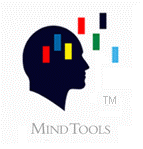Tips For Success In The Virtual Business Office

• What are the main challenges of virtual teams?
• What practical tips does your book provide to help virtual managers to set up a virtual team and ensure its ongoing effectiveness?
• What should the managers look for when they select virtual team members?
• What is Team Charter and why it is so important to a virtual team’s development? What is a Team Code?
• How does a Team Charter differ from a Team Code?
• Effective communication is key to managing a virtual team, and you provide some fascinating insight into what you call Context Communication. Could you use the example of Maria to explain what you mean by this?
• It’s interesting that you say that, as a rule of thumb, people should pick up the phone rather than write an email within a virtual team. How important documenting communication in this environment??
• What are your top tips for conference calls?
• How can the virtual watercooler be created to encourage people to interact with each other and to create stronger relationships between virtual team members?
• Moving on to accountability and trust, which you cover in some detail. First, to clarify, how do trust and accountability relate to each other?
• Broadly speaking, how do you create accountability in a virtual team?
• When it comes to cross cultural differences, how do you recognize cultural differences and at the same time avoid stereotypes?
• At the end of your book, you share thoughts about the outlook of the virtual business office. How do you see this phenomenon developing, and with what impact? What can we expect virtual teams to look like in the future?



